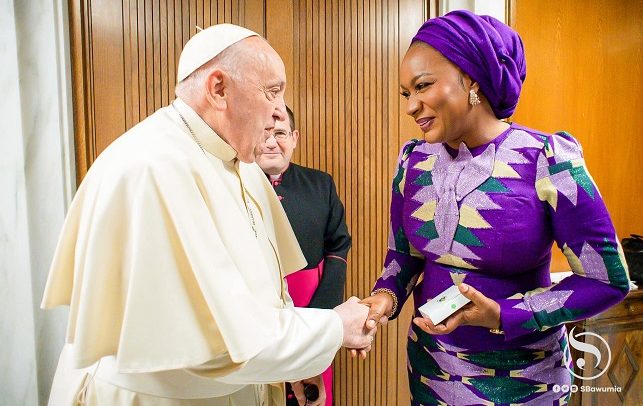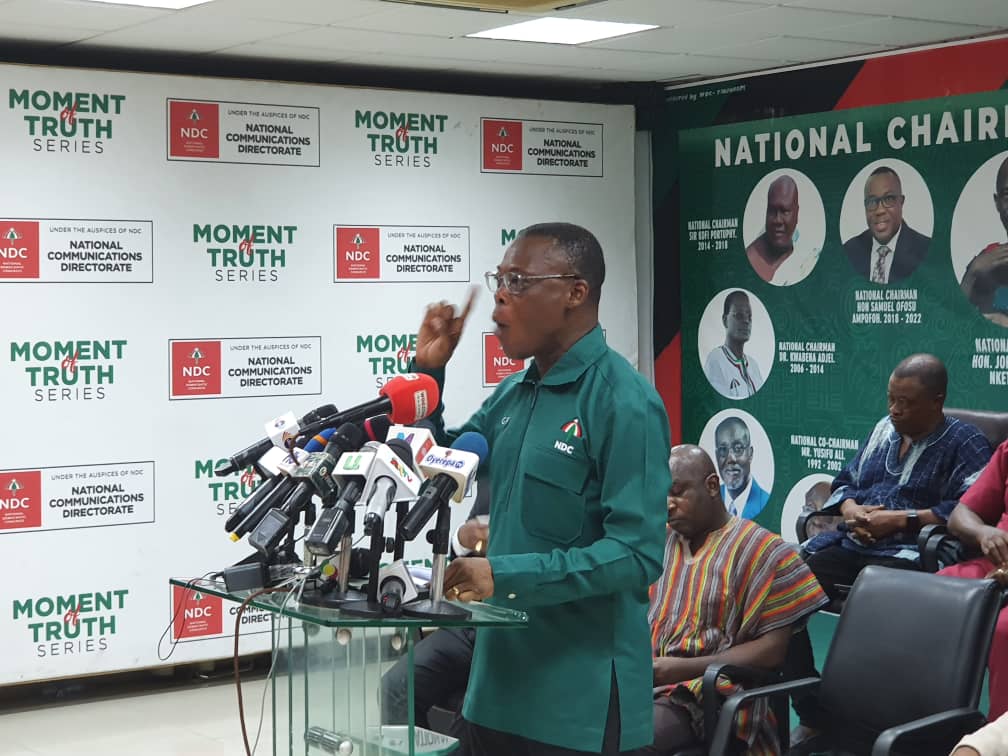
By Lawrencia Asieduah OSEI
In the world of finance, much like in life, we often find ourselves riding waves of fortune and misfortune. One moment, the winds are at our backs, and the next, we’re bailing water from a leaking boat.
Today, Ghana finds itself in the midst of a stormy sea, with the Ghanaian cedi playing the role of the beleaguered vessel.
As a Financial Risk Specialist and Treasury Analyst, I am well-versed in the ebb and flow of economic tides. But as a philanthropist, I am also committed to nurturing hope and resilience in our communities.
Let’s tackle the elephant in the room: the depreciating cedi.
It’s no secret that the cedi has had a rough ride lately, and it feels as though every other day we wake up to news of yet another dip in its value. For those keeping score at home, the cedi’s decline has led to rising inflation, increased costs for imported goods, and a general sense of financial instability. It’s the kind of news that makes you want to stuff your mattress with cash and hope for the best.
But before we all start panicking and trading our cedis for goats, let’s take a moment to breathe. Yes, the situation is serious, but it is not insurmountable.
Let’s break it down and see how we can navigate these choppy waters together.
Understanding the decline
The depreciation of the cedi is primarily driven by a mix of external and internal factors. Globally, the US dollar has been strengthening, which often means other currencies, including the cedi, take a hit. Domestically, challenges such as fiscal deficits, high public debt, and trade imbalances have exacerbated the situation. When a country imports more than it exports, demand for foreign currency increases, putting downward pressure on the local currency.
The cedi’s journey in recent times could rival any blockbuster. Picture this: once stable, it now finds itself grappling with external pressures and internal imbalances. Global economic disruptions post-pandemic, supply chain hiccups, and geopolitical tensions have all thrown curveballs its way.
These economic fundamentals have a real impact on everyday life in Ghana. The cost of living has risen, and businesses that rely on imported goods are feeling the squeeze. However, acknowledging these challenges is the first step towards addressing them.
It will be well
Here’s where we pivot from the gloom and doom to a message of hope. Ghana has faced economic challenges before, and we have always emerged stronger. Our resilience as a nation is one of our greatest strengths.
The government is taking steps to stabilize the cedi. Measures such as fiscal discipline, improving the trade balance by boosting exports, and seeking financial support from international partners are all in the works. These strategies may take time to bear fruit, but they are essential steps toward long-term stability.
Moreover, we as individuals and businesses can also play a part. Supporting local products, investing in the local economy, and practicing prudent financial management can collectively help shore up our economic resilience.
Laughing through the chaos
Now, let’s lighten things up a bit. If there’s one thing Ghanaians are known for, it’s our ability to find humor even in the most trying situations. So, let’s imagine for a moment that the cedi is not a currency, but an unruly teenager. It’s unpredictable, occasionally frustrating, but ultimately, it’s part of the family, and we love it regardless.
Picture the cedi as that teenager who insists on wearing mismatched socks and singing off-key in public. Sure, it’s embarrassing sometimes, but deep down, we know it’s going through a phase. With a little guidance, patience, and a lot of love, this phase will pass.
Holding onto hope
In conclusion, while the current state of the cedi is less than ideal, it’s not the end of the world. By understanding the factors at play, supporting efforts to stabilize the economy, and maintaining our sense of humor, we can weather this storm.
Economic challenges, while daunting, often pave the way for innovation and growth. The current plight of the cedi serves as a wake-up call, urging both the government and citizens to adopt sustainable practices and strategic thinking. By fostering local industries, practicing fiscal discipline, and leveraging the innate resilience of the Ghanaian people, the economy can bounce back stronger.
So, while the cedi’s performance might seem like a roller coaster ride, remember that every dip is followed by a climb. With collective effort and strategic foresight, Ghana’s economic landscape can transform, promising a future where the cedi not only regains its strength but propels the nation towards unparalleled growth and prosperity.
Ghana has a bright future ahead. Our natural resources, entrepreneurial spirit, and resilient people are the backbone of our economy. Let’s hold onto hope, support one another, and remember that after every storm, there’s a rainbow. The cedi may be down, but it’s not out, and neither are we. Stay strong, Ghana – better days are ahead.
Lawrencia is a distinguished Finance Risk Specialist and Treasury Analyst. As the CEO and founder of Unisyst Consult (Unisystconsult.com) and the Asieduah Cares Foundation, she seamlessly integrates her financial expertise with her passion for philanthropy. Lawrencia’s leadership and commitment to social responsibility are evident in her professional achievements and charitable initiatives.
The post The Cedi Conundrum: Navigating the currency woes with hope and humor appeared first on The Business & Financial Times.
Read Full Story













Facebook
Twitter
Pinterest
Instagram
Google+
YouTube
LinkedIn
RSS